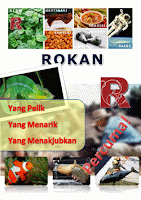Birds have many beautiful features and some of
them also have elaborate crown or crest while other have less or none at all. These
crown not only to give those birds beautiful features to attract mates but also
to show the bird’s emotions. So their crown is very important for
communication.
They are few types of crowns for birds. Most of
the bird's crown are formed by different colours and shapes of feathers. It can
be small or sometimes very different from their head’s feathers such as for
crowned crane or cockatoo. There are many other birds have the same type of
crown and they use it for different purposes.
 |
| Crown craned crest made up of totally different feathers. |
 |
| Malachite Kingfisher has more prominent crest of feathers. |
While some other birds crown are formed by
fleshy upright structure known as comb. Their comb can be vary in size, colour
and shape that located at the top of the bird’s head. The easiest example for
birds that have this type of comb are jungle fowl, and domestic roosters.
Casque is little bit different as it is built
from keratin (more like cow’s horn). There are also different types of shapes,
colours and sizes of casque in birds that showing signs of wear over time. Few
example of birds with casque are cassowary and hornbill.
 |
| Casque on cassowary's can be part of their weapon too. |
 |
| Rhinoceros hornbill is another type of bird with casque on its head. |
Little bit different than comb, wattles is
formed by fleshy growths on a bird’s head, face and neck. So this structure not
only formed on the head that make it different than comb. The easiest example
for this type of crown are Muscovy ducks and wild turkeys.
It is wonderful to see the different types of
these crowns on birds as it also the easiest way to identify the bird species in
the field. While for the birds itself, it shows how unique they are from any
other species of animals (mammals) that mostly use their horns for protection
or fighting.
No matter what are the reasons birds have such
elaborate crown on their head, all we need to do is to properly observe this
feature on birds. Hopefully this is another interesting thing for us to learn
more about birds in order to protect them for the future.








